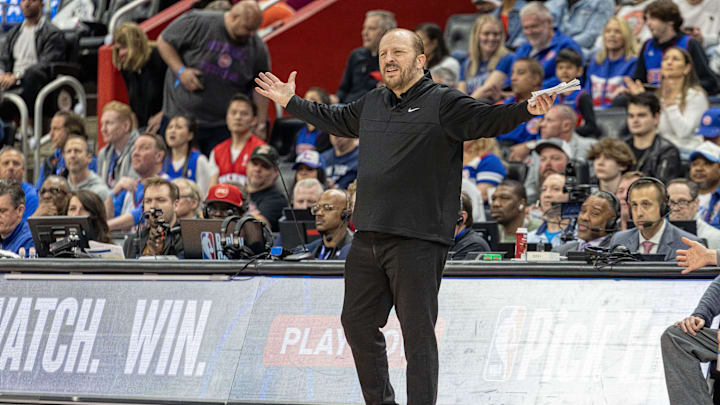The New York Knicks continue to defy the odds this postseason, becoming the first team in NBA history to record back-to-back wins after trailing by 20+ points in the playoffs. In Game 1, luck seemed to be on their side as the Boston Celtics shot just 25% from three, missing over 30 wide-open shots.
Critics claimed the Knicks simply “got lucky” and that Jalen Brunson’s heroics and Mikal Bridges’ late-game defense were flukes. But when they replicated the same performance in Game 2, not only going up 2-0 in the series but also stealing two games on the road at TD Garden, it was clear the Knicks were making their own luck.
The city of New York couldn’t be happier. Fans haven’t been this excited about the playoffs since 2013. Whether you’re watching from your couch or at one of the many live watch parties, it’s clear that the right kind of history is being made.
With Game 3 headed to Madison Square Garden, the Knicks still have plenty of work to do to keep the series from swinging back in Boston’s favor. The Celtics, despite the two losses, are still a dangerous team — and the defending champions. So, what exactly do the Knicks need to check off their to-do list?
3. Crash the Boards!
One recurring issue from the first round is that the Knicks struggle with rebounding. In fact, they’ve been out-rebounded in every playoff game so far, even in close wins.
In Game 1, the Celtics grabbed 10 more rebounds — seven of them on the offensive glass. Yes, the Knicks were at a disadvantage with both Karl-Anthony Towns and Josh Hart in early foul trouble — their two best rebounders — but they were also outhustled by smaller players like Derrick White and Jrue Holiday. In Game 2, the rebounding gap was smaller (just five), but Boston still snagged six more offensive boards.
Players need to back each other up on missed shots, attack the paint, and aggressively go for second-chance opportunities. In today’s game, boxing out seems almost like a lost art, but the Knicks need to bring back the mentality of crashing the glass — like McDonald’s bringing back the McRib. It might take more effort, but the final result will be worth it.
2. The Mitchell Robinson Experiment
The Celtics may have taken a page from the Detroit Pistons’ book by exposing Mitchell Robinson’s free-throw struggles. Whenever possible, Joe Mazzulla employed a “Hack-a-Shaq” strategy, forcing Robinson to the line, where he shot just 3-10 in Game 1. This approach forced Tom Thibodeau to play Towns for extended minutes despite his foul troubles. In Game 2, Mazzulla used the same tactic, but Robinson only went to the line once — and airballed his free throw after an And-1 against Kristaps Porzingis.
Credit goes to Thibs for managing Robinson’s minutes wisely, pulling him just before the Celtics reached the bonus. Robinson finished Game 2 with six points, eight rebounds, and three steals in 22 minutes, boasting a +32 box score. His defensive presence, particularly in shutting down Jayson Tatum from beyond the arc, has been invaluable.
The Knicks need to stay committed to using Robinson in high-pressure situations. His confidence is growing, and he’s becoming less of a liability and more of a defensive force. In a seven-game series, small sample sizes matter, and it’s crucial not to bench him out of fear.
1. Don’t Go Down 20 Points
This one may sound obvious, but the Knicks simply can’t afford to fall behind by 20 points. There are a few reasons why avoiding big deficits should be a top priority:
First, Knicks fans deserve an easy win — something they haven’t seen since Game 1 against the Pistons (even then, they faced a 10-point deficit in the fourth quarter).
Second, the bench needs more playing time. In the last three games, Cameron Payne has logged fewer than six minutes per game. Whether due to careless turnovers or poor 3-point attempts, Payne’s limited role has hurt the team’s ability to rest Brunson and McBride. Similarly, Landry Shamet, once the first sub in Game 1 against the Pistons, hasn’t seen the floor in four straight games.
Finally, the Knicks need to control the game from the start. Setting the tone early has been key to their success, and while heroic comebacks are thrilling, they’re also stressful and unsustainable. Taking care of business at home means establishing a commanding lead early and never looking back.
For Celtics fans, it’s time to hope for a bounce-back to tie the series. For Knicks fans, it’s time to hope for more of the same — because Game 1 and Game 2 were just the beginning of what could be a dangerous playoff run.
